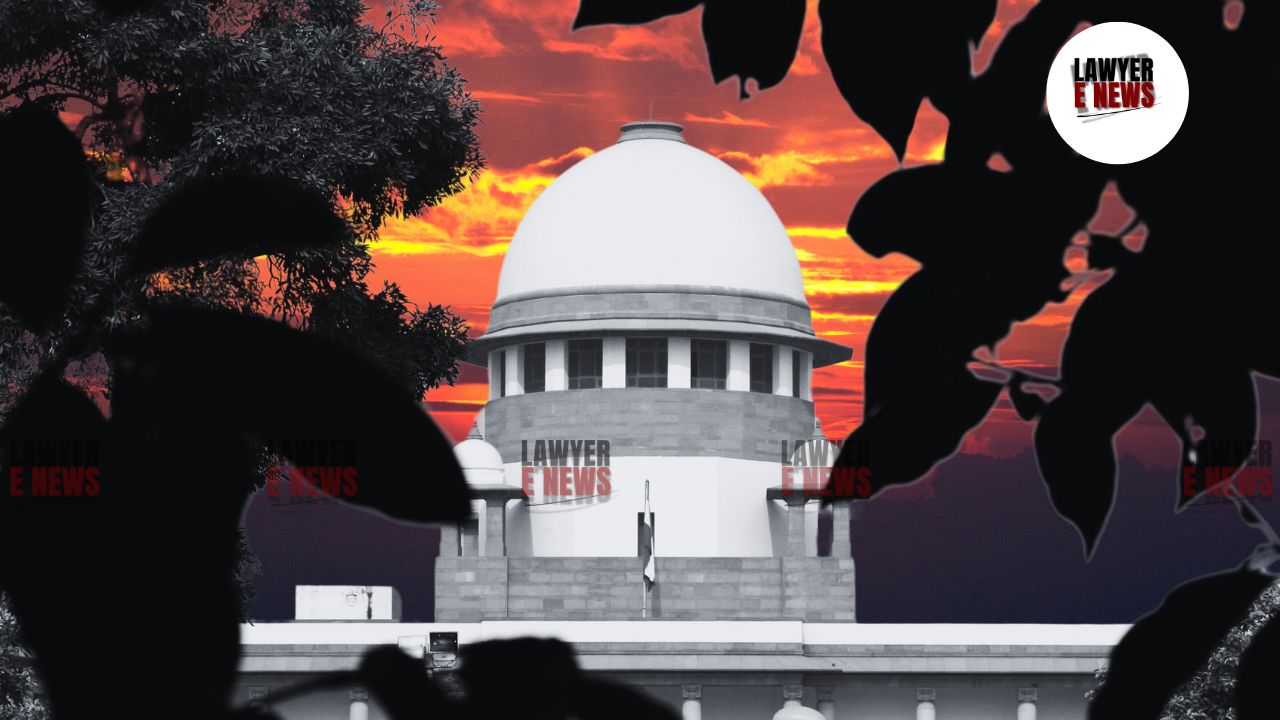-
by Admin
16 February 2026 1:47 PM



Employees Cannot Be Deprived of Salary Fixation Benefits Without Due Process - In a landmark judgment Supreme Court of India dismissed the appeals filed by Maharashtra State Road Transport Corporation (MSRTC), upholding the Industrial Court’s decision that the unilateral revision of wages in 2015 amounted to an unfair labour practice. The Court ruled that "any downward revision of wages, once granted, must adhere to principles of natural justice and cannot be done arbitrarily without consulting the affected employees."
Rejecting the MSRTC’s plea, the Supreme Court affirmed that "when a wage revision has been in place for years and has led to a legitimate expectation among employees, it cannot be overturned retrospectively, especially without notice or consultation."
"Pay Scale Revision Cannot Be Used to Undermine Employee Rights" – Supreme Court Defends Workers’ Entitlements
The dispute arose when MSRTC revised the salary structure of employees in 2015, canceling the previous wage fixation granted in 2010. The workers challenged the revision before the Industrial Court, which ruled that the 2015 revision amounted to an unfair labour practice under the Maharashtra Recognition of Trade Union and Prevention of Unfair Labour Practices Act, 1971.
MSRTC contended that the 2015 revision was necessary to align wages with the Supreme Court’s earlier ruling in Maharashtra SRTC v. Premlal (2007) 9 SCC 141. The Corporation argued that the Premlal judgment clarified that employees who had completed 180 days of service would only be entitled to benefits if they met the conditions set out in the 1985 settlement.
Rejecting this contention, the Supreme Court observed that "while Premlal clarified the applicability of time-scale pay, it never mandated retrospective withdrawal of already granted benefits. The rights conferred through wage fixation in 2010 cannot be taken away through an arbitrary administrative order."
"MSRTC Ignored Due Process and Workers' Rights" – Supreme Court Calls Out Procedural Irregularities
The Supreme Court found that MSRTC failed to provide prior notice or engage in any consultation with affected employees before implementing the 2015 revision. The Court ruled that "natural justice demands that before reducing wages, employees must be given a reasonable opportunity to present their case. Failure to do so renders the entire revision process legally unsustainable."
Highlighting the procedural lapses, the judgment stated: "The wage fixation order of 2010 was granted in compliance with an earlier Industrial Court decision of 2008. MSRTC never challenged that order, and revising salaries in 2015 without following due process is unacceptable."
The Supreme Court referred to Quinn v. Leathem (1901 AC 495), reiterating that "a judgment is only an authority for what it actually decides. The interpretation of Premlal cannot be stretched to justify a revision that adversely affects employees without due process."
"Premlal Judgment Does Not Justify Arbitrary Pay Reductions" – Supreme Court Clarifies Legal Position
The Supreme Court clarified that the Premlal judgment dealt with the conditions for granting time-scale pay and did not authorize MSRTC to withdraw existing benefits retrospectively. The Court noted that MSRTC misinterpreted the ruling to justify the 2015 pay revision, which lacked any legal backing.
The judgment emphasized: "A settlement that has been in place for years, providing employees with financial stability, cannot be overturned overnight without cogent reasoning and adherence to established legal principles."
"Supreme Court Protects Worker Rights, Dismisses MSRTC’s Appeal"
Dismissing the appeal, the Supreme Court ruled: "The revision of wages in 2015 by MSRTC is arbitrary, unlawful, and contrary to principles of fair labour practices. The Industrial Court’s decision to set aside the revision stands affirmed."
The Court also made it clear that "employees who have retired in the intervening period shall continue to receive the benefits granted under the 2010 wage fixation, and no recoveries shall be made from them."
The Supreme Court’s ruling reaffirms that "labour laws exist to protect workers from arbitrary administrative actions that deprive them of earned benefits. Employers must follow due process before altering wages, and any failure to do so renders such revisions invalid."
By upholding the Industrial Court’s decision and dismissing MSRTC’s appeal, the judgment ensures that employee rights remain protected against unfair labour practices. The ruling sends a strong message that wage structures cannot be changed arbitrarily, and organizations must adhere to legal and procedural safeguards while making such revisions.
Date of decision: 27/02/2025
